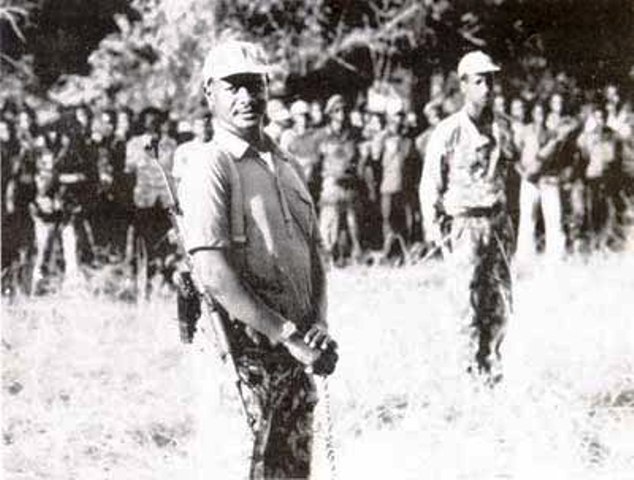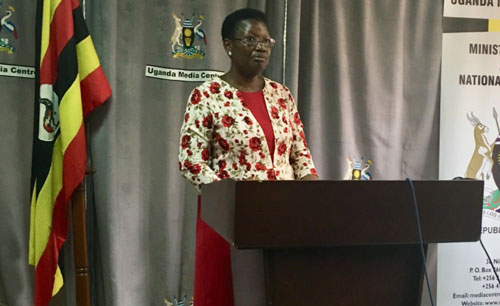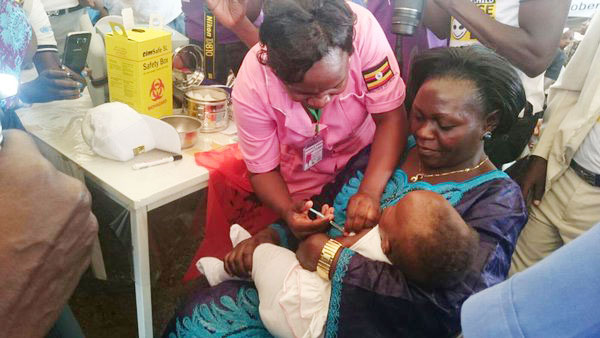
Kampala, Uganda | THE INDEPENDENT | Exactly 32 years ago on this day, the National Resistance Army (NRA) handed the Uganda National Liberation Army (UNLA) regime a crashing defeat, taking over Kampala after a 5 year bush war.
“Uganda’s Liberation, a significant contribution to our present and future development,” will be the theme as the country’s leaders converge at Boma Grounds in Arua to join wananichi in celebrating the January 26, 1986 National Resistance Movement (NRM) victory.
“The celebration is an opportunity for each of us as individuals to assess our individual and or group contribution to what I would call liberation that is liberating our economy, creating wealth, prosperity for all and creating an enduring peace for our country and fellow human beings in other parts of the world,” said Minister of the Presidency Esther Mbayo.
As part of the celebrations, President Yoweri Museveni will award 200 different categories of medals to distinguished Ugandans who have played critical roles both in the liberation of Uganda but also those others that have played key roles in advancing our country.
Mbayo said the sacrifice that President Museveni and other young Ugandans decided to take in order to liberate Uganda from the jaws of helplessness to which the first post-independence governments had conspired to consign, is very illuminating.
“His was a story of unflinching bravery. It is the story of unwavering search for a true, revolutionary and development-oriented leadership.”

She then listed highlights that will be celebrated:
GDP growth
Uganda’s growth has averaged 6.74% per year, making it the 17th fastest growing economy in the world, the 4th fastest in Africa out of 189 countries on the IMF list. When you remove mineral rich countries from the sample, Uganda is the 10th fastest growing economy in the world, first in Africa.
Revenue collection
Revenue collection has increased from sh5bn in 1986 to now over sh12 trillion in 2016/17. This has made it possible to support many Government projects. Government has sustained macro-economic stability and restricted inflation to a single-digit.

Energy
Electricity access has increased to 20.4% of households in 2016 compared to 11% in 2011. Construction works at the Karuma and Isimba hydropower projects are at 51% and 63% completion rate, respectively. Work is ongoing at 12 other power projects.
Infrastructure
In the last five years, emphasis has been put on developing infrastructure with a view of reducing the cost of production. Paved Roads have increased from 3,317kms in 2011/12 to 4,919km. The Government plans to construct more paved roads and also build bridges. It has provided new additional road equipment to all districts to enable them work on their roads.
Ferry crossings have increased from two to nine and this has improved water transport. Government is undertaking to build ships, ferries and develop the ports at Port Bell, Bukasa and Jinja. Government has started the Standard Gauge Rail (SGR) project that will link Uganda to our neighbours. The expansion of Entebbe International Airport and rehabilitation of upcountry airfields is ongoing.
Employment
Government introduced a five-year sh265bn Youth Livelihood Programme to provide startup capital for the youth to create jobs for themselves and employ others. In the Financial Year 2015/16 80,286 youths were given technical and financial support to implement 6,181 projects.
Education
The primary schools sub sector registered an increase in total enrolment from 8,264,317 in 2015/16 to 8,655,924 in 2016/17.Secondary schools sub sector experienced a total enrolment growth from 1,284,008 in 2015/6 to 1,457,277 in 2016/17.

ICT Sector
Government has supported the growth of ICT which contributes over 8% to the economy and employs more than 1 million people. The completion of the National Backbone Infrastructure (NBI) has increased efficiency in service delivery and supported expansion of e-services. This has increased contributions to tax revenue and employment opportunities. It has also reduced the unit cost of internet.
Health
In the last five years Infant mortality declined from 54 to 43 deaths per 1000 live births; the under-five child mortality declined from 90 to 64 deaths per 1000 live births. Maternal mortality has also declined from 438 to 336 deaths per 100,000 births respectively. Deliveries in a health facility have increased from 57% to 73% of all births. Mother to Child HIV Transmission has declined with the number of new infections dropping from 22,000 in 2012 to 3,400 in 2016. Immunization against the five immunisable diseases among children is now at 97% coverage.
Security and peace.
Uganda is a much secured country in the last 32 years. Uganda is not only peaceful as a country but is at peace with all our neighbours.
 The Independent Uganda: You get the Truth we Pay the Price
The Independent Uganda: You get the Truth we Pay the Price






ningtao@mail.knauf.com.cn